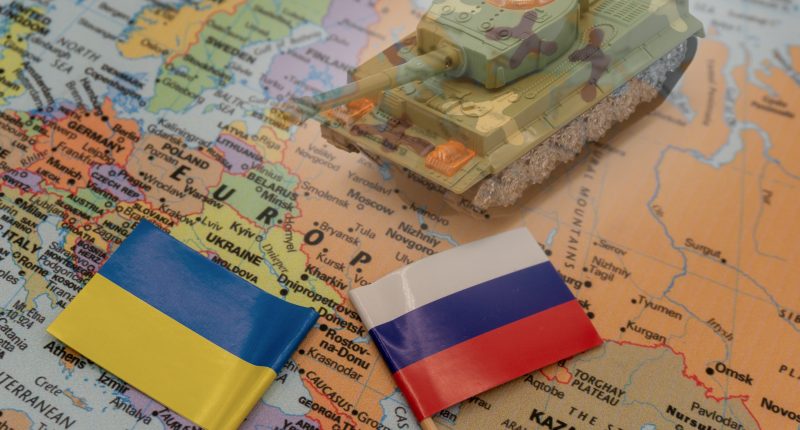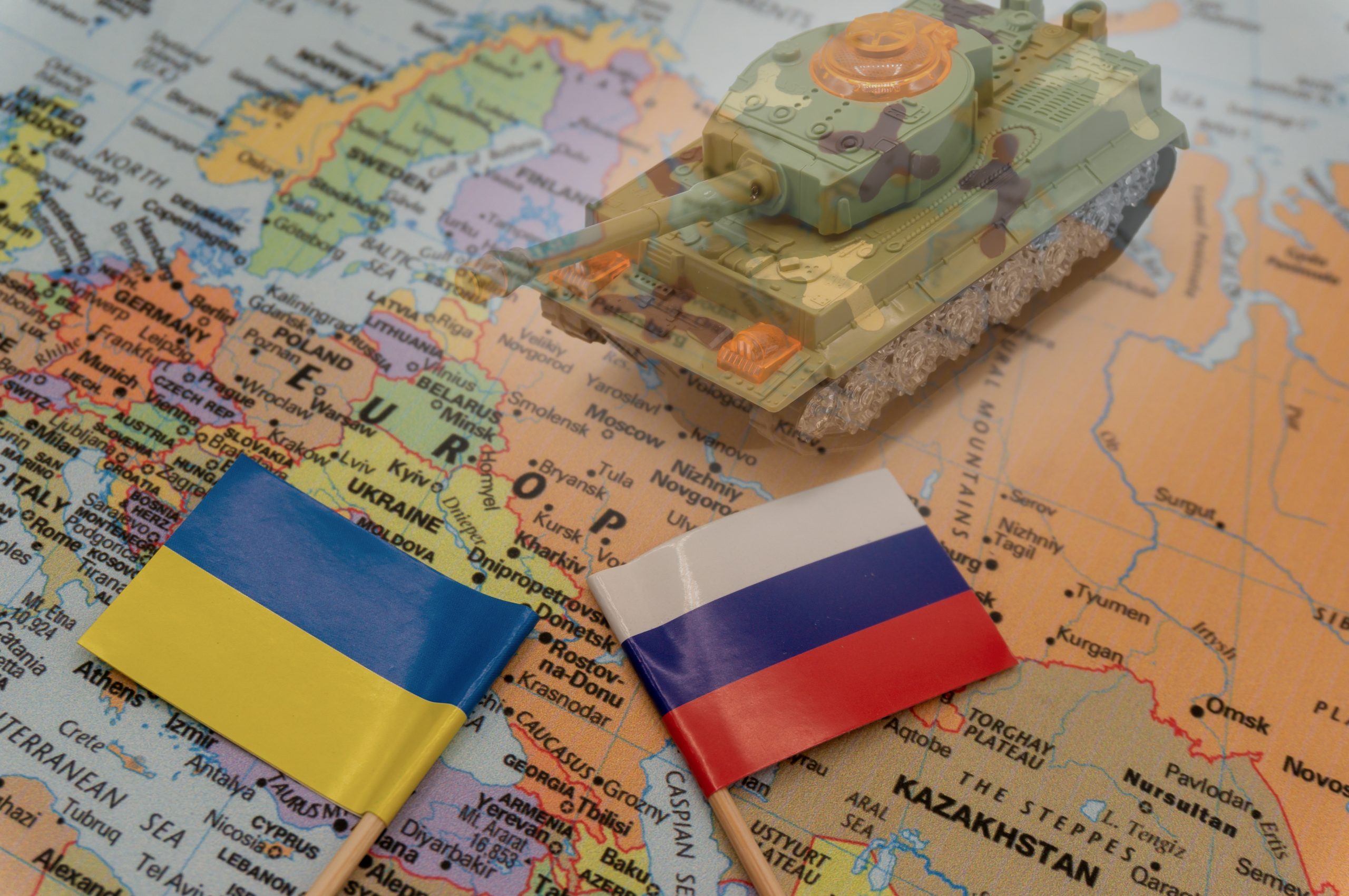The TSX continued its three-week slide as Russia launched a full-scale attack on Ukraine.
Financial and health care stocks led the losses, which were limited by gold and energy producers on a spike in global commodities.
The invasion saw Brent rising above US$105 per barrel and West Texas Intermediate crossing US$100 per barrel, its highest level for more than seven years.
The materials sector rose as much as 0.5 per cent with gold reaching US$1,975 per ounce, the highest since September 2020, before plummeting to around US$1,885.
Explosions and gunfire are currently showering Kyiv, a city of three million people, as hundreds of thousands of soldiers cross Ukraine’s borders from Russia, Belarus, the Azov Sea and the Black Sea.
The invaders have already captured Hostomel Airport and the Chernobyl nuclear power plant in the biggest interstate attack in Europe since World War II.
In an early morning speech, Russian President Vladimir Putin referred to the attack as a “special military operation” to demilitarize Ukraine and protect Russian-backed separatists in the eastern part of the country, whose sovereignty he has acknowledged.
The dictator has also called Ukraine, which intends to join NATO and the E.U., an artificial construct and Russia’s rightful property.
Europe, Canada and the U.S. have responded with sanctions against Russian banks, sovereign debt and the country’s elites.
The U.S. may move to further de-dollarize Russian trade, even though the transcontinental nation has fostered domestic production, tightened international debt, and amassed over US$600B worth of gold and foreign currencies to protect itself from sanctions since annexing Crimea in 2014.
The economic consequences of Putin’s actions are already being felt across the world as oil, Russia’s main export, fails to keep pace with the rebound in consumption as the pandemic recedes.
European natural gas rose as much as 56 per cent on the news as the continent depends on Russia for one fourth of its oil and one third of its gas.
Russia is also a major supplier of aluminum and nickel, as well as wheat, which Ukraine also produces, with prices spiking on fears of potential supply chain disruptions.
OPEC+ could quell the unease when it meets on March 2nd to work out April’s output. That said, according to the IEA, the organization delivered only 70 per cent of last month’s supply boost.
Investors are still expecting the Bank of Canada to raise interest rates on March 2nd followed by six more hikes over the next year. Markets are also pricing in a hike from the U.S. Fed on March 16th and from the Bank of England one day later, though Russia’s war games may stall economic growth and warrant a change of plans.
While widespread condemnation of the invasion points toward it being a short-lived affair, it remains an open question whether the fallout will reach wages and spur inflation on to worrying heights. The lone tragic certainty is that dozens of innocent lives have been lost, with more sure to follow as reports are adjusted and the world watches on.
The TSX managed to close up by 0.09 per cent to 20,761.93.
Yields on the 10-year bond declined in the U.S., Germany and the U.K. in a flight to safety from Russia’s aggression, with Canada’s likely to follow once official numbers are released.
Market movers
Over the last two days, our readers have focused their attention on two companies cementing their paths in burgeoning commodities, as well as a third leading the way in post-COVID meeting technology:
Sugarbud, a craft cannabis company, signed a national supply agreement with Mendo Medical.
Solar Alliance signed a contract with Knoxville Utilities Board for a 1 MW solar project in Tennessee.
Finally, ARHT Media, a holographic technology provider, closed a C$10M private placement at a considerable premium.
Companies announcing capital raises this week include CopAur Minerals, MineHub, Abacus Mining and Exploration, Bitcoin Well and C2C Gold.






